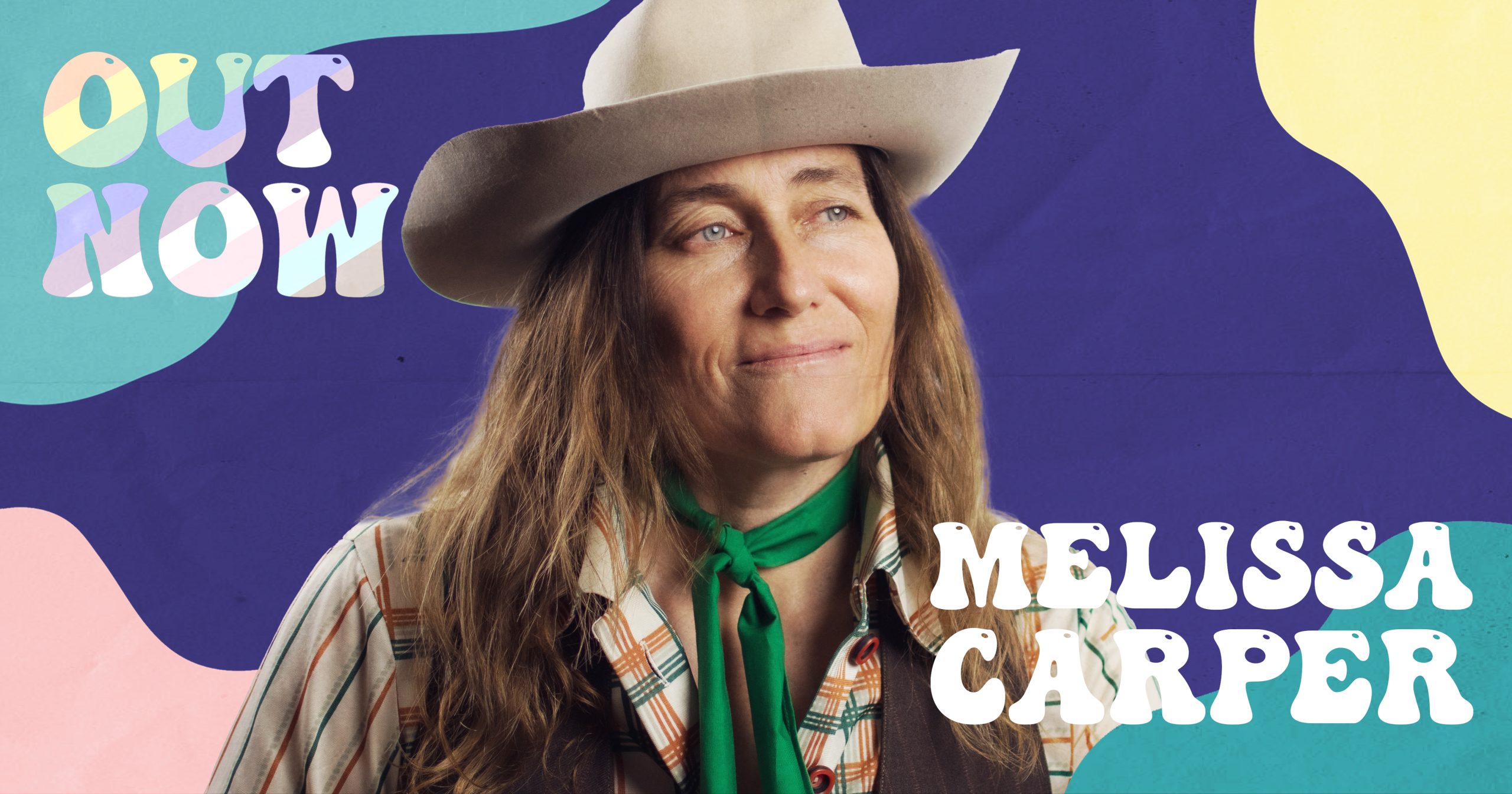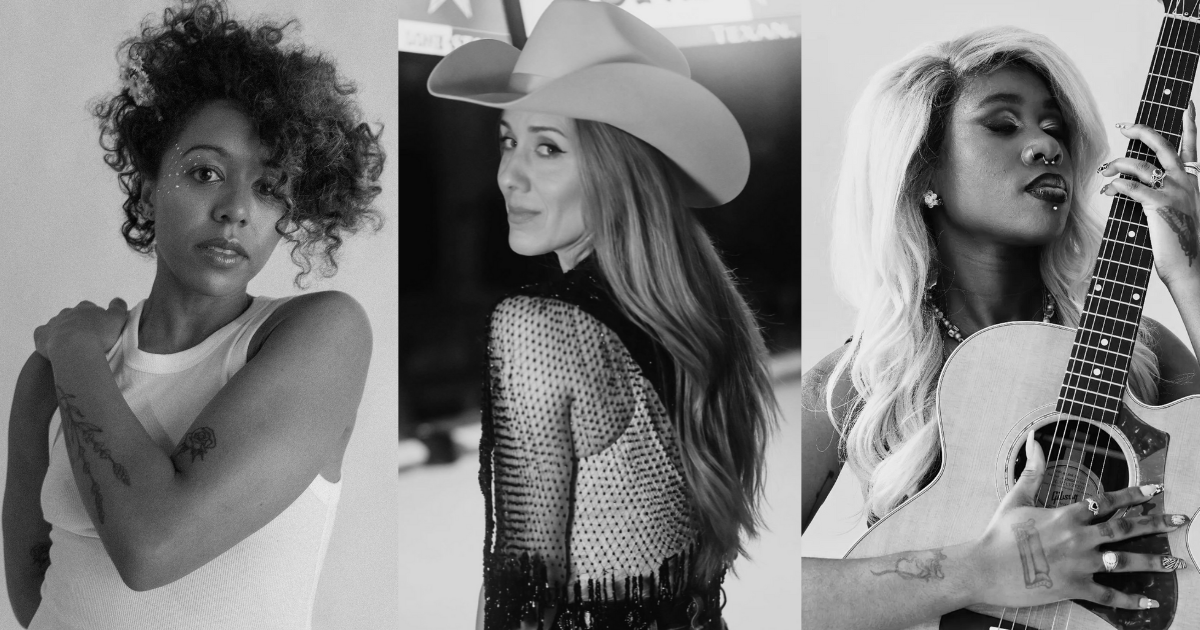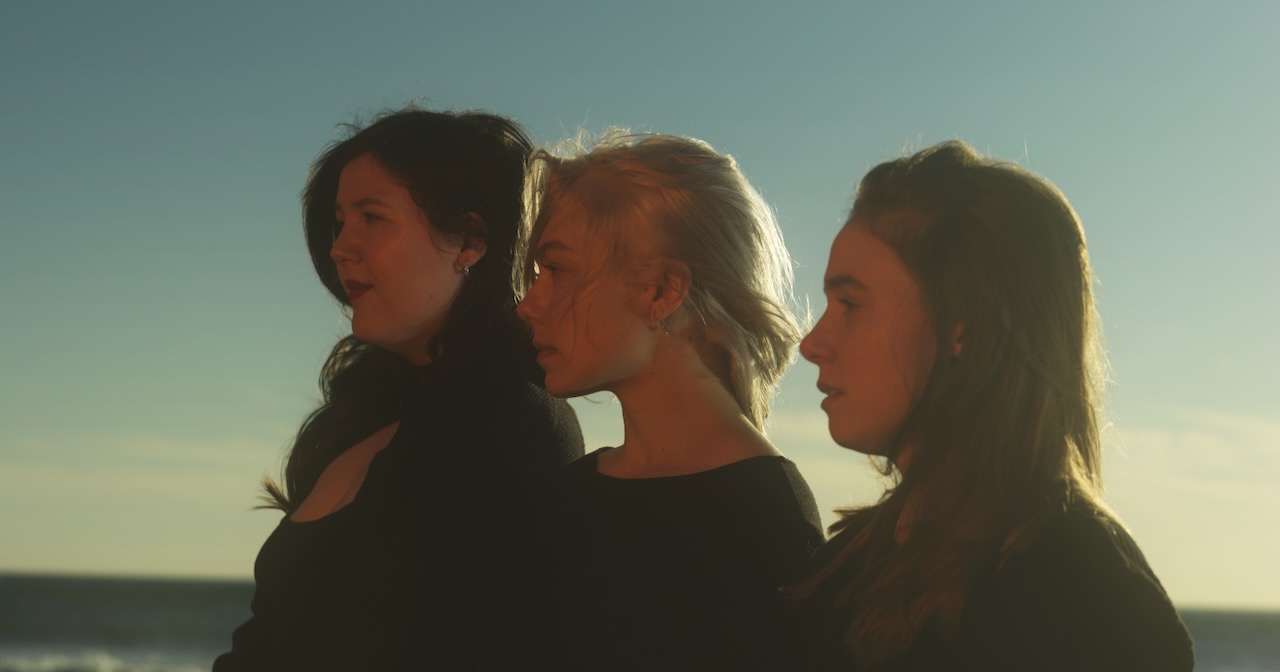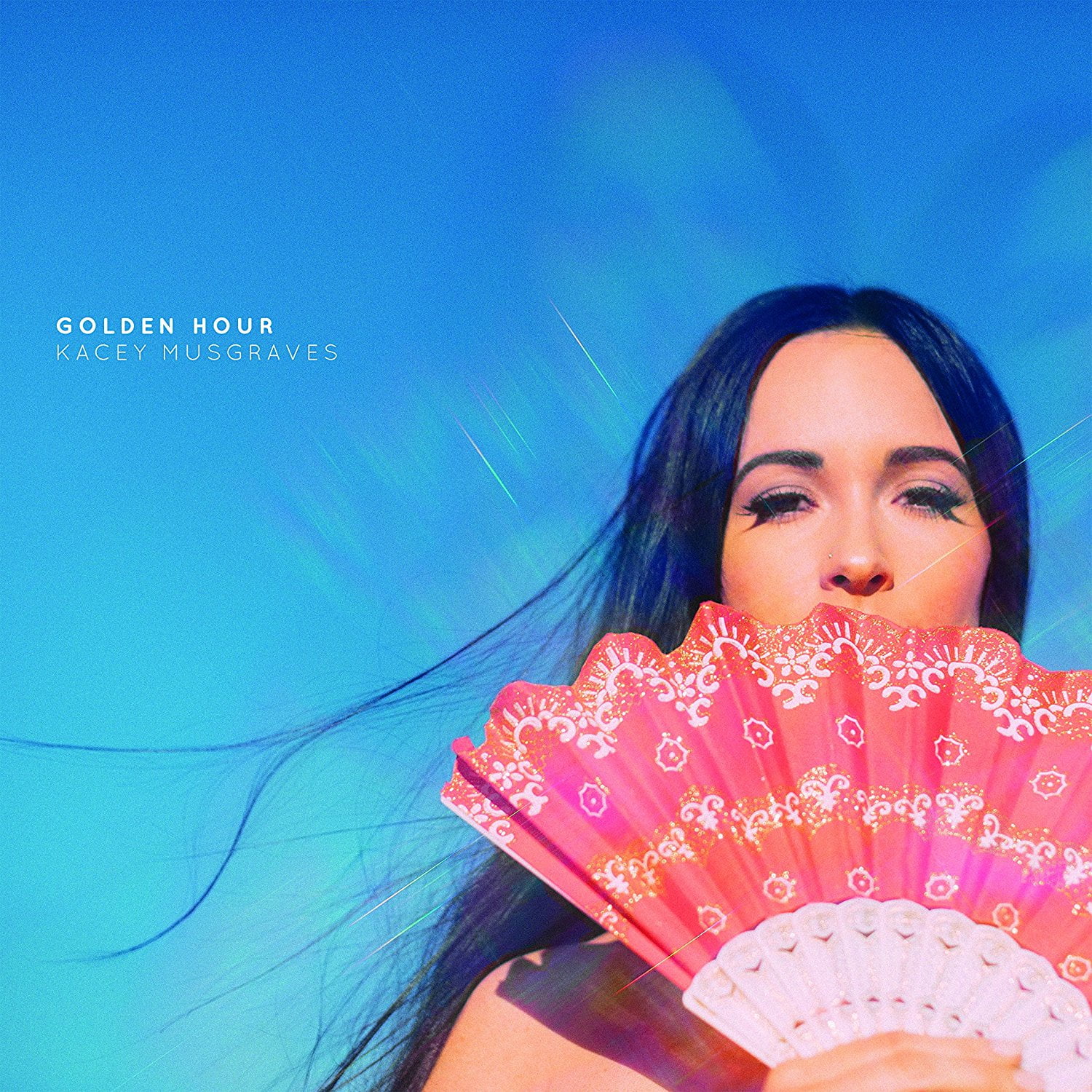Melissa Carper’s new album, Borned In Ya, was released today. The album travels through stories and experiences that explore journeys of self-actualization. The songs gather many proficient and accomplished musicians – Dennis Crouch, Chris Scruggs, Jeff Taylor, Billy Contreras, Rory Hoffman, Sierra Ferrell, and more – to create a collection of sounds that are carefully shaped into a captivating work of art.
Carper stitches innovation with tradition, creating something that is new and exciting while also feeling familiar and warm. Her storytelling and authentic style shine, making her music both personal and relatable. In this interview, we dive into her new album, why she creates music, and her release and touring plans for the next year. We’re so excited to highlight this incredible artist and her new album, Borned In Ya.
What excites you most about this new album?
Melissa Carper: This is my favorite album I have made so far; the material is fresh and demonstrates an evolution in my writing and singing. I feel more confident and relaxed and many of these songs allow me to “croon.” I am excited for people to hear it and to see how they respond and how they like it. I can’t wait to take these new songs out on the road and play them for people.
How do you cultivate a balance between traditional and innovative sounds?
The traditional is easy for me, because I’ve mostly listened to older music, so those are my influences. I don’t “try” to be innovative, but I feel like having a really good grasp on roots music these days is almost innovative, in a sense. A lot of people have lost touch with that music. My goal is to bring the roots back, but perhaps with some new lyrical ideas, a unique and personal expression of pain and growth (that I hope is relatable), and combining styles that I love together. Together with the producers and musicians that I have been working with on my albums, I think we’ve taken innovative approaches to the songs as well as maintained traditional feels and sounds.
What was your experience collaborating with such an incredible team of highly skilled and accomplished musicians?
I feel so lucky to get to work with everyone you mentioned. They bring my songs to life in a way I could have never imagined. Chris [Scruggs] plays straight or console steel, rather than pedal. The straight steel is the older instrument and is perfect for most of the songs I write. Chris also played guitar, rhythm and lead, on my albums. Rory Hoffman played guitar on about half of the songs on Borned In Ya. They both did such an incredible job. I’m really in awe of all of these musicians.
Dennis Crouch is the best I’ve heard on upright bass and as an upright player, I listen to his bass parts and try to learn them. In the process of doing that I realize what a genius he is. Jeff Taylor, on piano, often sets the tone of a song and always has brilliant ideas. Billy Contreras blows my mind (and everyone else’s) with the fiddle parts and layers he comes up with. On “Lucky Five,” he really outdid himself on the fiddle solo section. Also, I had Doug Corcoran on horns for this album. He played trumpet and saxophone on five songs. Having horns on my songs is new for me, and I think that sets this album apart from the previous ones.
Rebecca Patek wrote an absolutely gorgeous string arrangement for my song, “There’ll Be Another One.” It is my favorite part of the album, when the strings come in on this song. Jenn Miori Hodges, an old bandmate of mine from The Carper Family, sings stellar harmony on several songs. It felt great to have her on this album, we have such a long history of playing together and she plays with me now quite a bit, whenever she is available. And Sierra Ferrell sings an amazing harmony on my cover of a jazz tune from the ’30s called “That’s My Desire.” Sierra actually recorded that harmony back when we were recording the Ramblin’ Soul album. I had too many songs to fit on that album, so I saved it for Borned In Ya. It is really a dream to work with all these folks and I hope I get to continue to do so. I feel like I lucked into a good thing, a formula that really works for me.
The title track, “Borned in Ya,” focuses on being shaped by life experiences. What are your thoughts on how nature (genes) versus nurture (environment) shape musical ability?
I believe, in most cases, it’s probably a lot of hard work and obsession with something you love that makes someone good at something. I definitely have musical genes in my family, but I had the advantage of my parents having me sing and play from an early age. I had a great bass teacher in junior high and high school and got to study music in college with great teachers, then I kept on learning from each band I was in. I was obsessed with old-time music – country, blues, jazz. I listened in an obsessive way until it became a part of me. I feel my learning process has been a steady, slow one, but the great thing is, I continue to grow.
This album is a compilation of stories and experiences written in song. What was it like to craft one collective album that travels through desire, love, heartbreak, life on the road, and growth?
I had a lot of fun writing the songs on this album. Three of them are co-writes with Brennen Leigh, and we always have a good time writing together. I think I’m having more fun than ever with writing and I hope people can feel that in the songs. I love having a combination of heartbreak and also some fresh romance in this album. Not everything is autobiographical of course, and I’m getting better with that – writing from imagination, pulling from some old experiences and emotions to make it real, or imagining someone else’s situation.
I would call a couple of these songs “spirituals” that go a little deeper with life philosophy. It feels good to write about something besides romantic love and to speak of spiritual growth. Hopefully people who listen find the album inspiring. I feel like Borned In Ya is an expression of some of my past and some of the present, but with a wiser and more experienced soul – more has been “borned in me.”
What’s your ideal vision for your future?
I’d love to have a great balance between performing/touring and getting to spend time at home and in nature. To me, that would be the ultimate, to feel like I’m successful enough financially so that touring doesn’t turn into a grind. I don’t mind touring, but when I’m away from home too much it makes me feel disconnected from life in general, being exhausted, not getting enough alone time to be still and to be in nature. I am in a phase currently where I need to take the opportunities offered to me, even if at times it feels like I have too much on my plate. I’d also love more time to focus on creating a nonprofit to help those who are experiencing homelessness and struggling with mental illness. I dream of creating a center with a working organic farm, providing homes and a healing atmosphere.
Why do you create music?
I get melodic and lyrical ideas in my head and they just start developing, it’s one of the most fun and rewarding things that I do in my life. Once I know I’m onto something good, I’m quite obsessive about finishing it – usually within the day if the flow is there. If it is a song that I am forcing a little, or maybe the song has something good and promising in it but isn’t ready to be fully realized yet, I’m pretty good at coming back to it, sometimes even a few years later, and finishing it when the time is right. The process is the most fun, but I also love getting to present the song to an audience. It’s rewarding in a completely different way. Being able to record the song with great musicians and producers to see what it can sound like in its ultimate form, is an especially rewarding part of the process.
What is your greatest fear?
Even the idea of holding onto fear is fearful; my goal is to keep growing and confronting any fears I have that keep me from being the best possible version of myself. I guess that would be my biggest fear, that I allow myself to be too distracted to actually work on myself and confront any fears that I have.
Why do you think LGBTQ+ representation and community are important – in roots music and beyond?
When I came out, there were very few ‘out’ people in our culture. Seeing k.d. lang and Ellen DeGeneres coming out for me was just an affirmation that there were lesbians that existed in the world besides myself. It was really helpful for me to move to a community where it was normal and acceptable, which was the small and diverse town of Eureka Springs, Arkansas. If you are feeling uncomfortable with yourself, being in a community of folks that are accepting of who you are is a great thing. What I loved about Eureka Springs is that there were a couple of gay bars, but the gay people just hung out in all the bars and it didn’t feel like an isolated thing. It just felt normal and accepted to be part of the LGBTQ+ community there for the most part – except for maybe at the Walmart. [Laughs]
What are your release and touring plans for the next year?
Borned In Ya is out July 19th, 2024! I am doing a whole lot of touring around it – Montana, Colorado, Wyoming, Oregon, Washington, then venturing into Missouri, Arkansas, Illinois, Minnesota, Michigan, Wisconsin, Kentucky, and lots of Texas before making my way to Nashville for AmericanaFest. And, I just got back from performing in Europe! It’s a busy year, birthing Borned In Ya!
Photo Credit: Aisha Golliher



